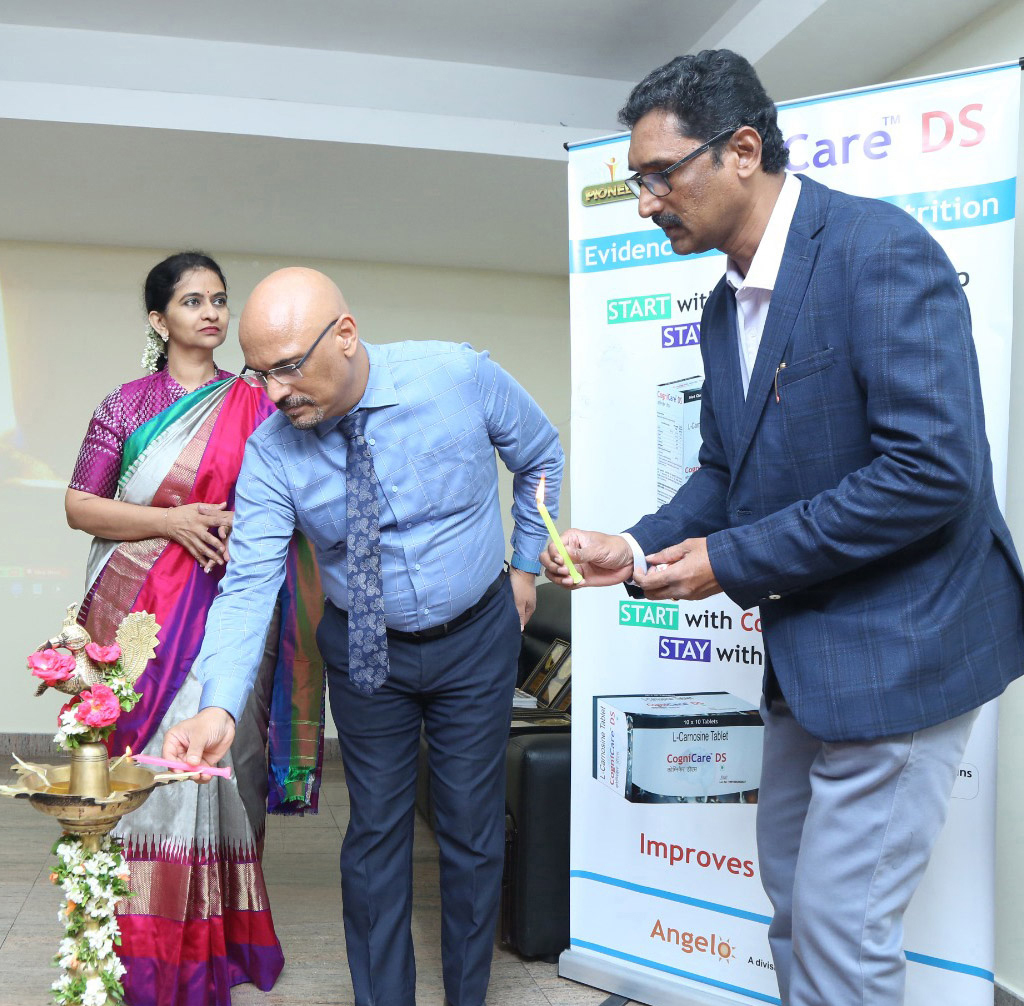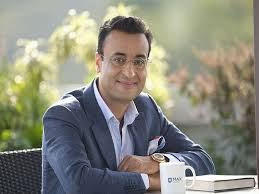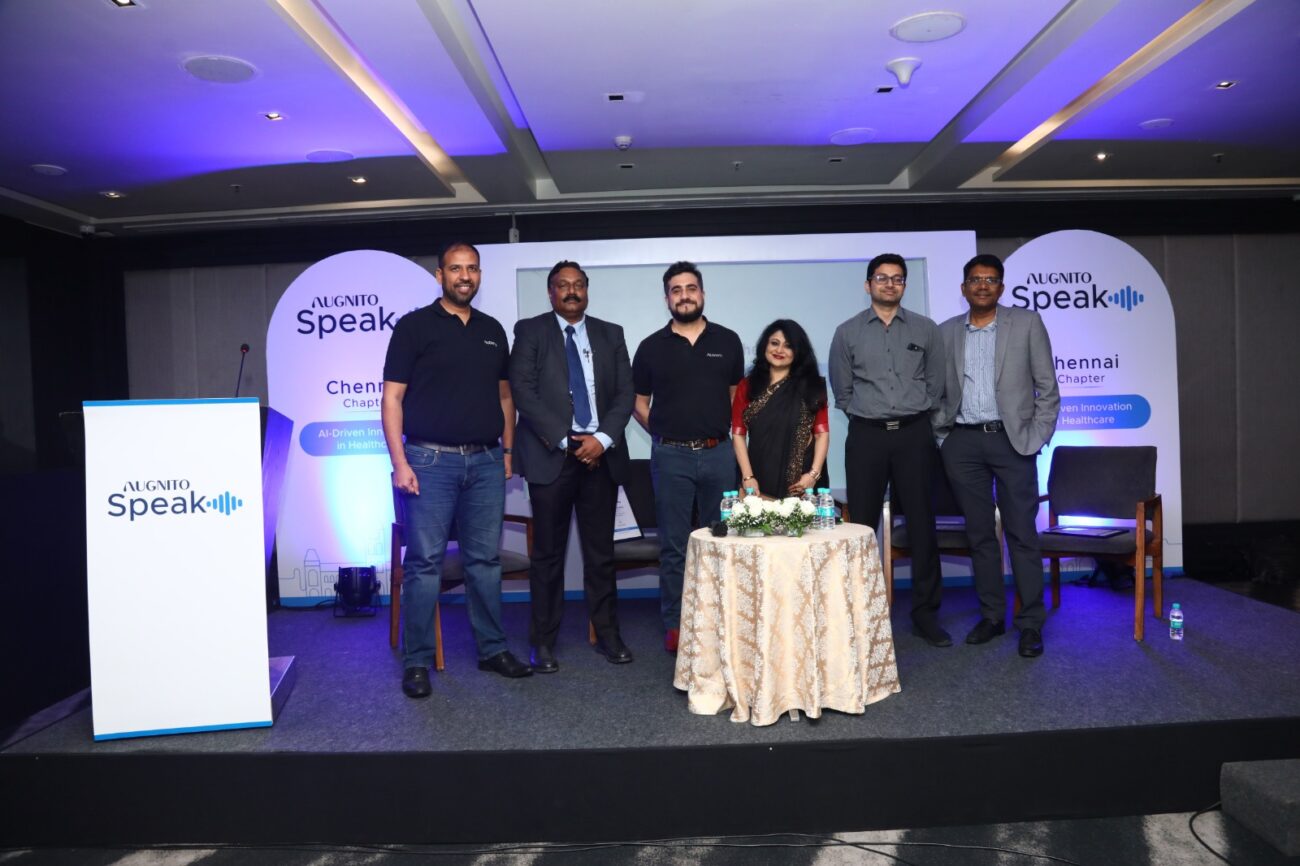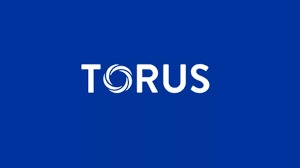Early detection, Early Intervention can help children with ASD!
Early Intervention is the best treatment for Autism Apollo Hospitals, Hyderabad hosted the Autism Awareness Program 2023 for the parents of children with ASD, as part of Autism Awareness month, today. A group of medical specialists

Early Intervention is the best treatment for Autism
Apollo Hospitals, Hyderabad hosted the Autism Awareness Program 2023 for the parents of children with ASD, as part of Autism Awareness month, today. A group of medical specialists comprising of Paediatrician, Early Interventionist, Paediatric Neurologist, Psychiatrist, Paediatric Dentist; provided tips to parents, to handle different challenges that arise while grooming these children. The unique awareness program equipped the parents with tips and guidelines to manage their child at home. The Program was inaugurated by Dr A. Ravinder Babu, Director of Medical Services, Apollo Hospitals, Hyderabad. The faculty comprised of Dr A. Jagadish, HOD, Developmental Health clinic, Apollo Hospitals and organizer and moderator of this Program; Dr P. Sharmila, Dr Bhanudeep, Dr Krishna Sahithi and Dr Manisha.
Autism or Autism Spectrum Disorder (ASD), is a Neuro developmental disorder that affects social interaction, communication, and social behaviour. It is called a spectrum disorder because it varies widely in severity and symptoms in developmental domains from person to person, explains Dr A Jagadish, HOD, Developmental Health Clinic, Apollo Hospitals.
Speaking on the occasion Dr A. Ravinder Babu said, Autism is a common disorder, one in every hundred children show some kind of autistic features, in our country. Approximately 18 mn., people are suspected to be suffering from this problem in India. Generally parents recognise this problem at the age of 3 to 4 years around the time the child begins to talk, that’s a very late presentation. In fact the autistic children show the features at an early age of less than one year, that is the time when the parents should recognise it and seek immediate medical intervention. Early intervention is the key to complete cure and treatment. Unfortunately due to social stigma attached to autism, parents tend to not to accept the fact and continue to be in the presumption of delayed growth. In the process they postpone until the problem becomes obvious. Need to appreciate the Government for becoming sensitive to the problems autistic kids face in school admissions, schools can no more deny admission to a child with any disorder. At Apollo Hospitals, we have a very strong paediatric team, a strong paediatric neuro department and we screen children for a spectrum of disorders a child could be suffering from and customise the treatment to the needs of that particular child. The main idea is to get these children into the mainstream and ensure they lead a normal childhood. The best part is, these children have good IQ, in fact they perform exceedingly well, it’s just that how we channelise the things and get things better for the child, is what matters .
According to estimates, approximately 18 million people suffer from autism in India. According to the World Health Organisation (WHO), ASD, or autism, affects approximately 1 in every 100 children. Experts are of the opinion that the condition can be significantly improved with Early detection and Early Intervention, India still has limited resources and facilities for those suffering with ASD. Most children with ASD are usually screened in their developing years. Early intervention plays an extremely significant and crucial role in improving a child’s verbal and social development.
Most parents tend to seek medical help only when the child reaches the age of 3 or 4 years and their speech starts to develop. But early red flags or signs of autism can be detected when they are a one year old. Most children in the spectrum do not respond to physical or verbal cues. Some also indulge in repetitive stereotypic behaviour. These are signs that parents can easily pick up, says Dr A Jagadish.
Autism is more common in boys than girls, with a ratio of 4:1. The usual behaviour of a child with ASD is, he being lost in his own world and show no interest in the surrounding environment. Exhibits certain repetitive behaviour like toe walking, taking interest in revolving objects, aversion or liking towards peculiar sounds like noise of pressure cooker, the noise of washing machine etc. The behaviours include inconsistent eye contact, no response to name but instant response to the sound of their choice, no pointing towards an object, no joint attention. The child may recognise and speak alphabets, numbers, colours, etc., but does not speak contextual social words. His vocabulary is maximally limited to need-based words or no contextual words.
Some of the children with autism are brilliant and exceptional, they exhibit performance which is sometimes far superior to the ones who are not ASD. Such children could be inducted into normal mainstream with early intervention program. Taking care of a child with autism requires awareness, patience, understanding, and family, community and social support, says Dr A Jagadish.
Paediatricians can screen the child with screening tools like M-CHAT for developmental red flags or any developmental deviations, when they come for vaccination or well-baby clinic and can refer for Early Intervention Therapy.
Dr A. Jagadish, Neonatal & Paediatric Early Interventionist recommends that parents should not expose their children below 5 years of age to electronic Gadgets, as they may cause Regression of children’s speech, cognitive, social and sensory development.






